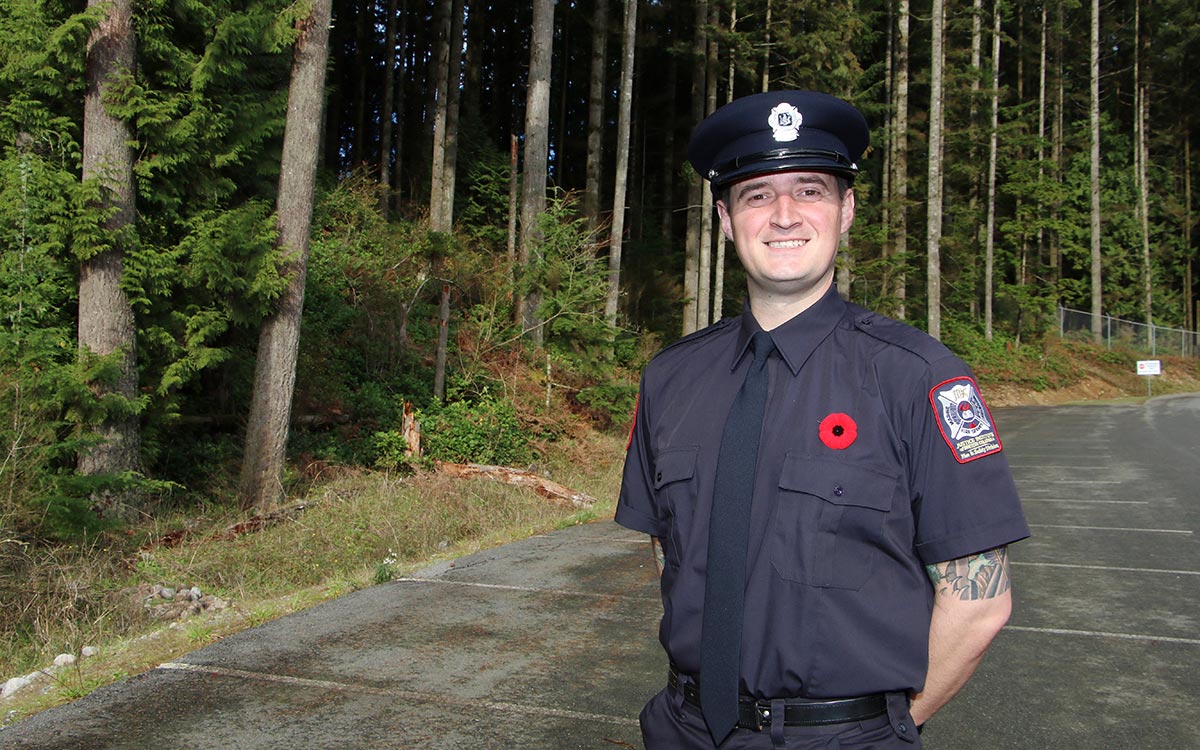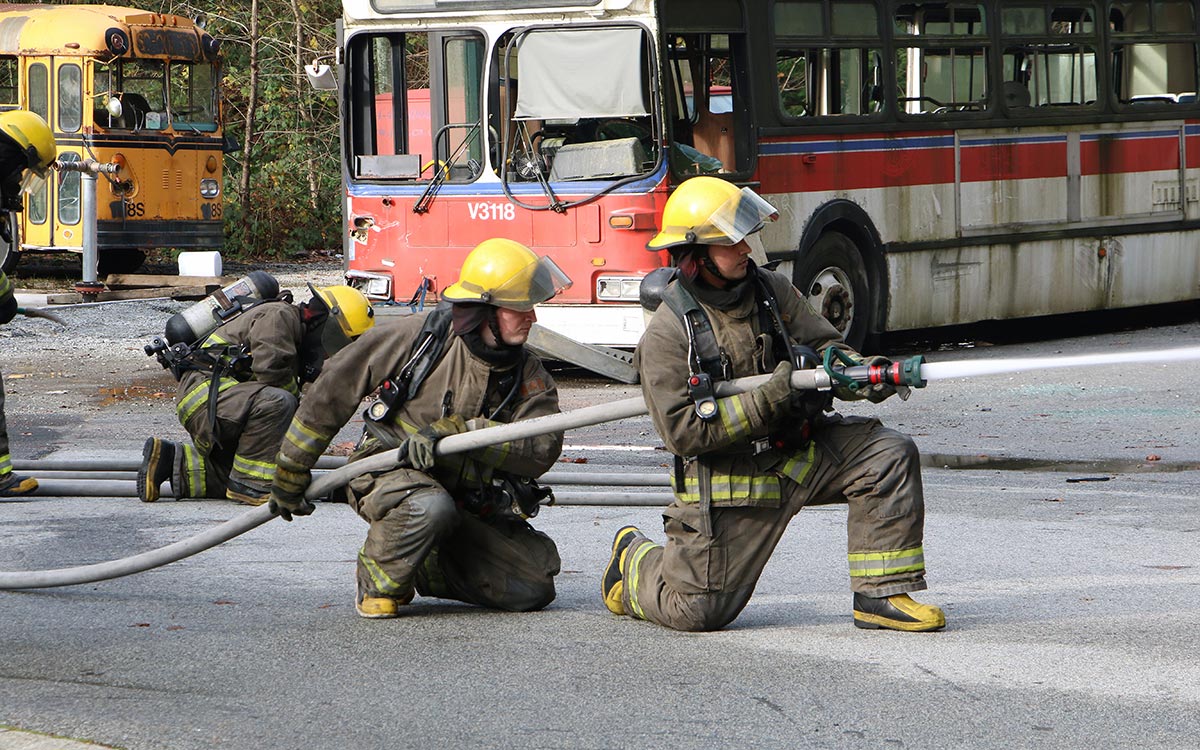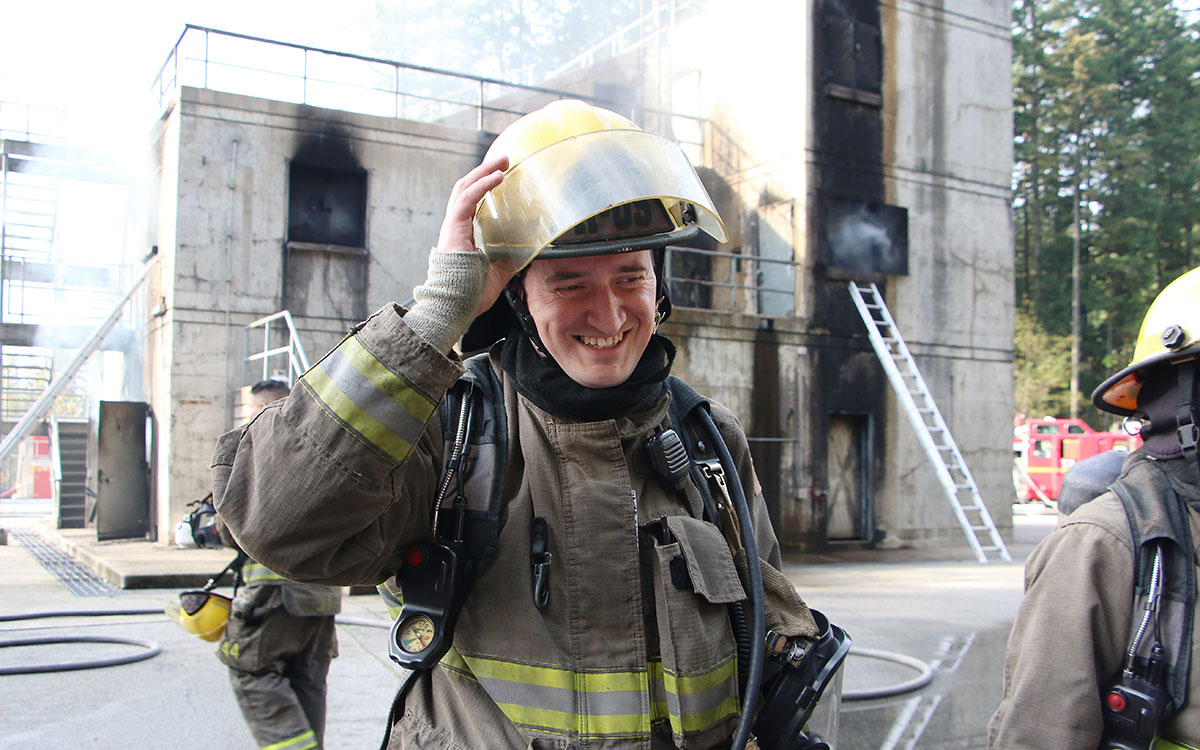At age 34, Deryck Lafortune had already spent more than a decade working as a service advisor at an auto dealership.
He was experienced and good at his job. What he wasn’t, was fulfilled.
“It didn’t pay my soul well, I guess.”
What Deryck did find fulfilling was what he did on his own time – volunteer work as a coach for men’s, women’s and high school rugby teams, community service. He was also very active, involved in sports and other activities.
“Firefighting seemed like the perfect marriage of the two, being able to help people needing help, to make other people’s lives better while at the same time maintaining the physicality of everything I really enjoy,” he said.
It didn’t hurt that he has friends who are local firefighters and they really sold him on firefighting as a career option.
“The fraternity, the camaraderie is definitely very appealing. I like the idea of working on a team, working with a bunch of people that work well together, have each other’s backs. That appeals to me quite a bit.”
With that career change in mind, Deryck enrolled in the Fire Fighting Technologies Certificate (FFTC) program at the Justice Institute of British Columbia (JIBC).
He’s glad he did. The program starts with a three-month online education portion, followed by two months of hands-on, practical training at JIBC’s Maple Ridge campus, one of the most extensive firefighting training grounds in Western Canada. He valued the five months he spent overall in the program.
“A lot of these things we learned are skills that decay. You need to refresh them and being able to do it for this long absolutely helps set those quite a bit further in my toolbox,” he said, adding the program was “the hardest and the most satisfying thing I’ve ever done.”
We've gone into a burning building. I can go into a job interview now no problem
Deryck appreciated the fact that their training officers were from different halls, municipalities, specialties and places in their careers.
“You have all sorts of different training styles, so if maybe there’s one method that’s not really working for me, another training officer will have a method that will work great.”
Their instructors taught from a combined hundreds of years of experience in the field. While a few were already retired, the rest were still working, sometimes heading off for a shift at their fire hall right after teaching a class, or vice versa.Deryck valued the different points of view he gained from his instructors, all of which will help him adapt to future workplaces. The emphasis on professionalism and discipline were also elements he believes would be helpful to anyone, no matter what career path they end up taking.
While the FFTC students were trained rigorously in performing the duties of a firefighter, they were also given opportunities to make their own decisions in a safe, supervised environment. For instance, during scenario training, they would be told what to do but not how exactly to do it.
“It was like the skills were a bunch of recipes, then they told us to cook a meal,” he said.
For Deryck, he also appreciated the chance to learn outside his comfort zone. He had been at his old job long enough that he could adapt and adjust to the unexpected.
“But here, it was all totally, totally new, from how to shine my boots to how to put out a fire, and not being good at something all the time, was at first very difficult,” he said. “I found the training officers were good at breaking down the skills, helping us to crawl, helping us walk, then helping us to run. We were able to build up those skills from scratch. Speaking for myself, I’m confident I can be a firefighter.”
His training also provided an added bonus as he seeks a career change.
“We’ve gone into a burning building. I can go into a job interview now no problem.”
For more information visit the Fire Fighting Technologies Certificate program page.


